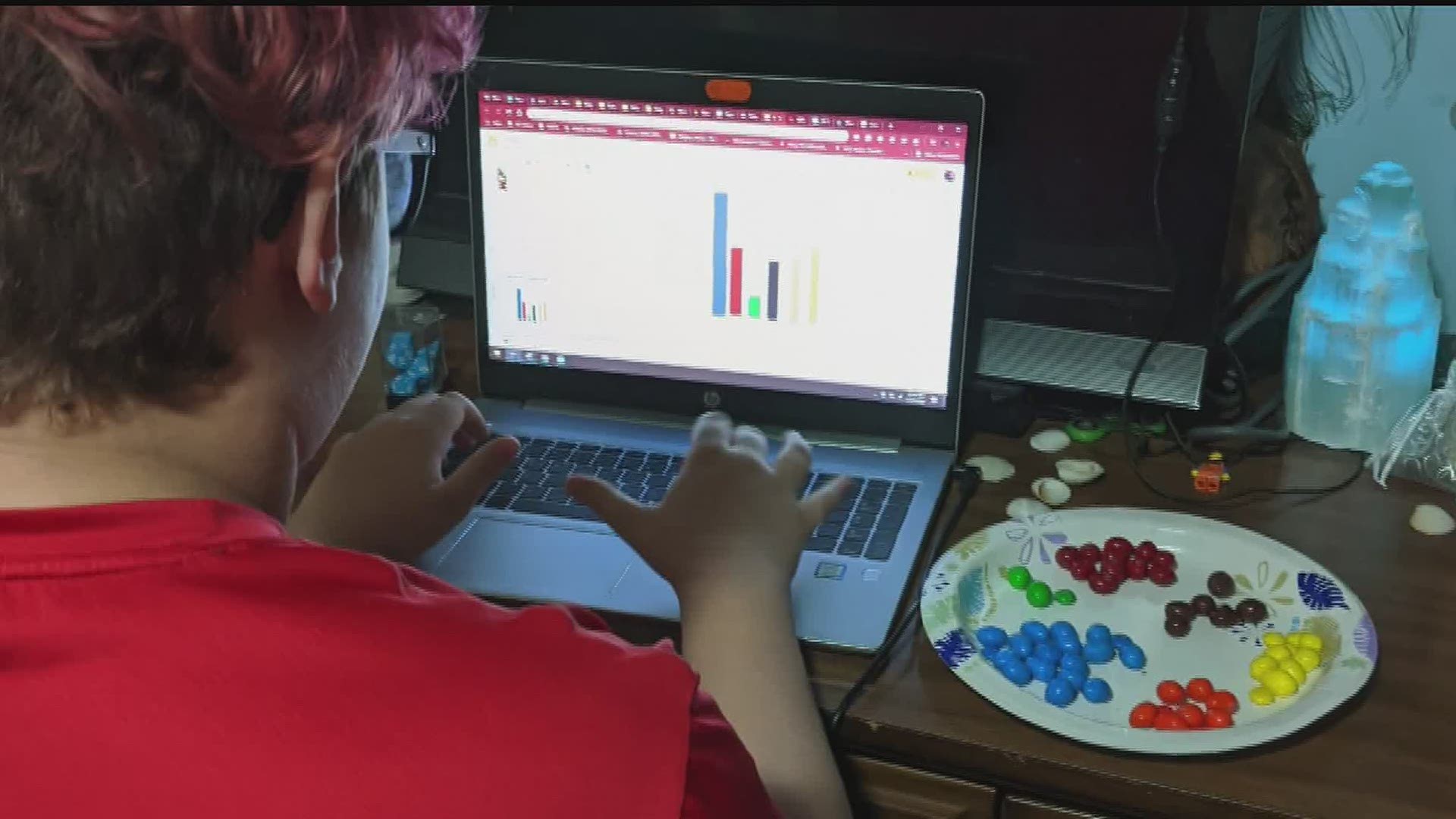Parents, students, and school districts are finding themselves in a unique position as the state has called off classes indefinitely amid the COVID-19 crisis.
In many instances, for students that means adjusting to learning from home. For parents, it means keeping their children engaged, educated, and on task.
“First thing I think they need to look at is getting them a workspace. A quiet space for them to study,” said Alexis Pollack, a learning coach who has experience in cyber-schooling. Pollack’s 11-year-old son, Henry, is a student at PA Virtual Cyber School.
Many districts are working to give students education opportunities while navigating what devices to use and what devices students have access to.
Harrisburg School District partnered with WITF to provide free curriculum in order to provide educational programming for students without access to internet. Meantime, districts such as Central York are providing online instruction in the same way it has provided flexible instruction in the past with students in grades K-8 having access to iPads and students in grades 9-12 having access to laptops.
Learn more about Central York School District’s virtual instruction here: http://www.cysd.k12.pa.us/home/what_s_new/coronavirus_2020
Pollack provides this advice to parents who are struggling as their children adjust to learning at home:
- Schedule times to check in with your child and to check their progress
- Keep learning fun
- Don’t get frustrated
“Be present. Be patient. And, be kind. This isn’t only new to you. It’s new for your student and for your teacher,” said Pollack.
Commonwealth Charter Academy President and CEO, Dr. Maurice Flurie, also has this advice for parents, “one of the most important things I think that any family can do right now is have their kid journal.” He added, “because 50 years from now, this is something they can share with grandchildren and even their own children. This is a very unique experience that’s going to be talked about for decades."
For students who don’t have access to educational tools right now, Pollack also suggests teaching children life lessons.
“Economics 101. Teach your kids how to balance a checkbook. What you do as a parent in everyday life, show they what you’re doing,” said Pollack.
Pollack said keeping her son, Henry, on his educational schedule during the COVID-19 crisis has aided him in other ways as well.
“I think it has helped in terms of his anxiety because his day hasn’t been turned totally upside-down,” she said.
The PA Department of Education provided more guidance to districts on Monday including resources for continued instruction.
“Running a completely virtual school is completely different than trying to do a continuity of education program to give kids educational experiences,” said Flurie. For parents who are trying to provide instruction for their children at home, Flurie adds, parents need to focus on engagement. “Don’t try to be the teacher,” he said. “Just allow the student to have educational experiences."
Go here for the PA Dept. of Education's guidance on the COVID-19 outbreak and for a list of resources for continuity of education.

